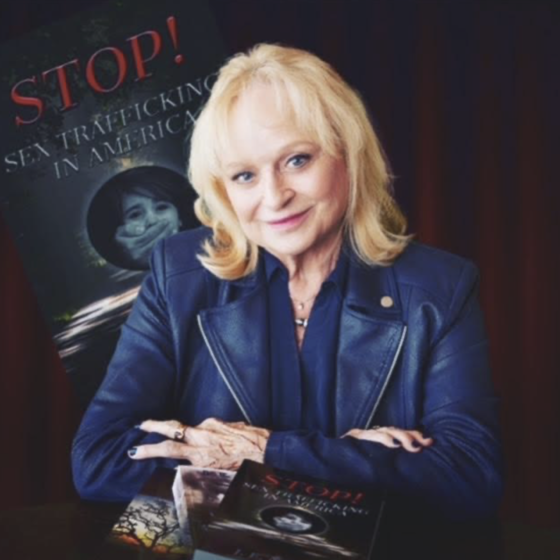By Judy Neiman
Sedona, AZ — I’d been waiting for the gunshot for over an hour.
After struggling down the thirty-foot, grassy, steep creek bank, I’d removed my white bobbysocks, and ugly brown shoes. I sat in the warm sand, letting the cool water dribble over my toes and rubbing my heels in the sand. Our family dog, Pet, a small, short-haired, white with brown spots terrier, rested beside me.
The stream was only about two feet wide at this time of the year. When it rained up North, the creek would flood from bank to bank with a thirty-foot-high wall of raging water. But between these Colorado thunderstorms, only a trickle of groundwater flowed, nearly silent, at the bottom of the draw.
The cool water was refreshing to my blistered right foot. I counted five Band-Aids covering seeping wounds doused with iodine. The orthopedic, built-up, brown leather shoe never fit correctly, causing persistent sores.
My feet were two different sizes due to the severe Polio I contracted at age five. Even if I stepped on Texas Sandburs, I’d rather go barefoot than wear the ugly, painful things.
I listened to the water trickling and the mosquitoes droning in near unison with the water bugs. A few cows grazed to my left, mooing occasionally. One drank noisily downstream.
A banty rooster with two fat hens pecked away at insects in the weeds nearby. A baby calf nursed its mom across the forty-foot-wide draw. The smell of animals and the sweetness of alfalfa growing to my left, filled my senses. I spotted a three-foot-long bullsnake slithering up the opposite bank.
Pet made a low growl and eyed the snake. I grabbed his collar. Even though I thought it not to be a poisonous reptile, I still didn’t want him to race over there. It could be a rattlesnake. Good thing Dad was not here. He hated snakes and was deathly afraid of them.
On the other hand, my mom would grab a shovel or a knife and cut their heads off as quickly as slicing individual cinnamon bun rolls from a round of dough. Often, she would hold a snake by the tail and throw it across the yard to get it out of the way. Sometimes her wrist action killed them right then and there.
About two hundred feet to my right was the bridge that divided two of our farmland quarters. My dad had trekked that way, going under the bridge. I’d watched him leave.
A tight barb-wire fence at the bridge kept the livestock from escaping. Dad had placed a temporary gate there if we needed to cross over.
I heard a vehicle approaching on the gravel road from the North and watched a red pickup rumble over the wooden bridge. Someone waved at me from the driver’s side. I waved back. The Ferbers, our nearest neighbor, lived three miles away.
We were isolated out here on the farm. Our house and outbuildings sat in the middle of my parents’ two sections of land. Where I was born, Sterling sat fifty miles to the West and contained our family doctor and the nearest hospital. The closest town, with a grocery store, was twenty miles away.
This day was nearly over. The sky turned from blue to pink as the sun neared the horizon. The wind increased, and the color of the clouds became orange and pinkish. The gentle breeze made leaves rustle in a rhythm of nature. The prairie grass on the pasture across from me whispered in the wind. It was late August and still too warm but pleasant.
I still had not heard the gunshot.
I thought about the history of this creek, called Patent, a branch off the North Platte River, and the still visible covered wagon trail on the rise opposite me. It had been called the Indian Trail, as not only had settlers traveled this path, but Native Indians forced to leave their Southern homes came this way. Most were the Indians pushed out of Texas, primarily the Comanche and the Kiowas, in the early 1800s. We still found their artifacts, including flint arrows in the creek bottom, stone tools, and pottery in the pasture. My parents always donated them to the local museum.
A loud, sharp boom resonated toward me through the open skies and down the creek. I shuddered and cried out, “No!” even though it was the gunshot I’d been waiting for.
My dad had killed Dolly.
The cattle eyed the direction of the sound and moseyed the other way. The rooster and hens scattered up the bank toward the chicken house. The animals seemed to know a gunshot meant death, or at least it was a good reason to move away. Pet nestled closer to me.
We stayed there in the sand even though I’d heard my mother call.
“Judy, Judy, come help me with dinner.” My mother refused to call me Kewpie, my nickname, due to my resemblance to the Kewpie dolls popular in the early 1900s with large blue eyes and curly blonde hair.
Mom had named me Judy out of defiance to her parent’s pressure to give me a biblical name and refused to provide me with the proper name of Judith. I’m glad she did. I like being just Judy.
My mother couldn’t see me down the steep hill, waiting for my dad even though I was only a football field distance away. She wouldn’t like me being there for him one bit.
Putting my socks and shoes back on, I heard the loud crunching of footsteps coming from under the bridge and saw my dad moving toward me. His shoulders hung low, and he lumbered in my direction. He didn’t look like the six-foot-tall man he was. Soon, he stood before me, tears rolling down his cheeks.
“I did it, Kewpie. I put Dolly down and buried her in the soft sand.”
I stood as he placed Dolly’s bridle, the shotgun, and a shovel on the ground then hugged him as tightly as possible.
“I’m sorry, Daddy,” I murmured, crying softly.
“It had to be done. Dolly was twenty-four years old and in unbearable pain. Vet Smith said I should have done it a year ago, but she was a good horse. My buddy. My pal. Had her since I was ten,” he sobbed.
We stayed there for a few minutes until my mother called my name again.
Dad picked up the gun, bridle, and shovel. We climbed the steep creek bank together. As I often did, I hung onto his jean pocket to help keep my balance.
Tears rolled down my cheeks. I loved Dolly. I thought of her buried beneath the gravel and envisioned her white coat with the thin brown stripe down her face, now covered in sand.
Dolly was dead.





